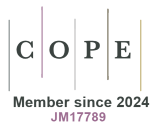Most read articles by the same author(s)
- Massimo Medaglia, Giuliano Buzzetti, Marco Cossolo, Paola Deambrosis, Giovanna Scroccaro, The future of drugs distribution in the National Health System , Global and Regional Health Technology Assessment: Vol. 11 No. 1: January-December 2024
- Annachiara Bellin, Giulia Franchin, Jenny Bolcato, Alessandra Bettiol, Roberta Pirolo, Alberto Schiavon, Pietro Giusti, Michele Tessarin, Alessandro Chinellato, Twenty Years of Hepatitis C in the Treviso District (Local Health Unit 2): Treatments, Clinical Management and Cost Analysis , Global and Regional Health Technology Assessment: Vol. 6 No. 1 (2019): January-December 2019
- Roberta Pirolo, Alessandra Bettiol, Jenny Bolcato, Giulia Franchin, Paola Deambrosis, Agostino Paccagnella, Pietro Giusti, Alessandro Chinellato, Cost-of-Illness Study of Diabetes Mellitus: Focus on Patients with Type 2 Diabetes , Global and Regional Health Technology Assessment: Vol. 3 No. 1 (2016): January-April 2016
- Paola Deambrosis, Alessandra Bettiol, Jenny Bolcato, Roberta Pirolo, Giulia Franchin, Sakis Themistoclakis, Pietro Giusti, Alessandro Chinellato, Thromboprophylaxis in Patients with Atrial Fibrillation: A Real Practice Analysis , Global and Regional Health Technology Assessment: Vol. 3 No. 1 (2016): January-April 2016









